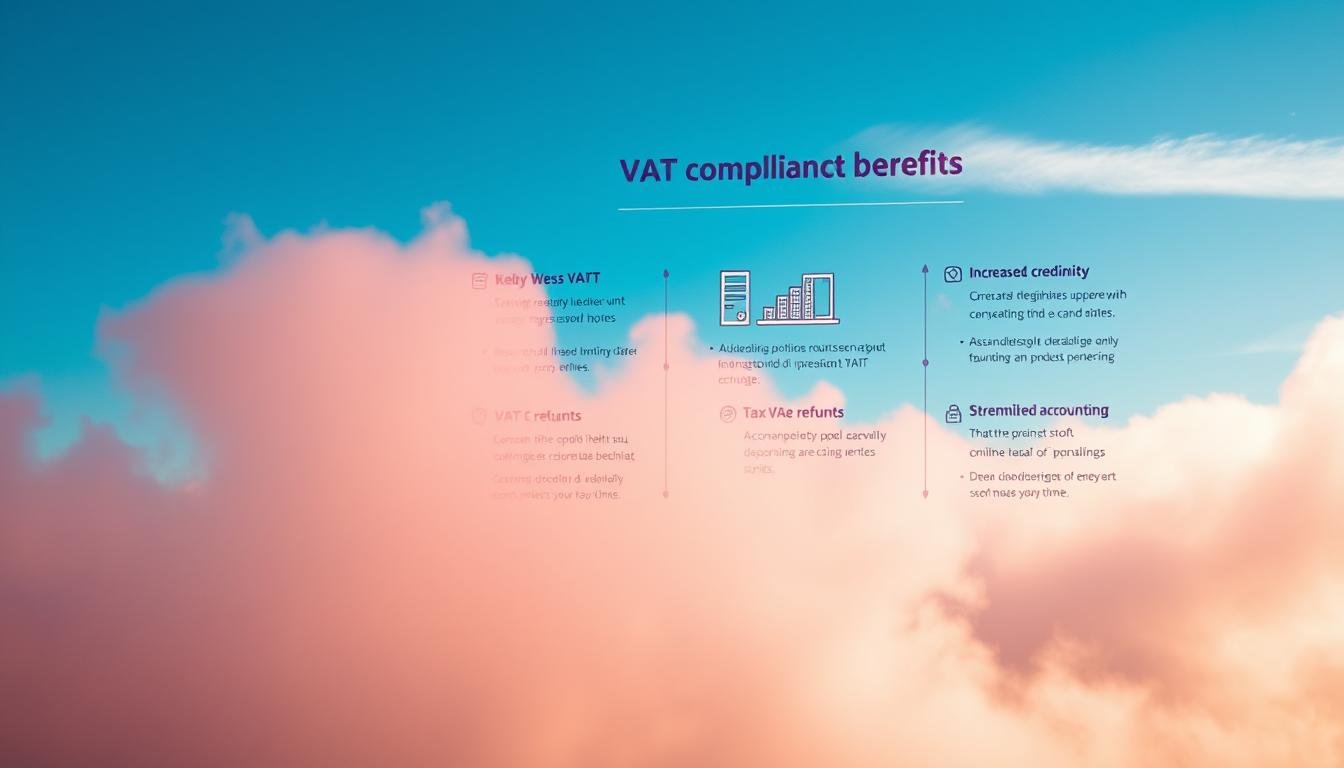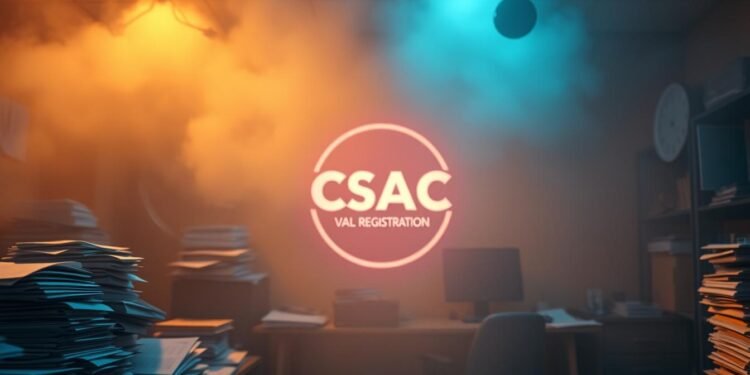Within the myriad of considerations for UK enterprises, perhaps one of the most daunting figures is the VAT registration threshold, currently positioned at a substantial £85,000. As a valued member of the editorial team at CSAC.org.uk, I navigate the intricate tapestry of tax liabilities, financial challenges, and the ever-present need for HMRC compliance that comes with this territory. My role is not only to elucidate these complex subjects but to provide insights and guidance to those businesses who find themselves grappling with the question: Is being VAT registered a lifeline for growth or a chokehold on their financial vitality?
For many businesses that exceed this threshold — and with a standard VAT rate of 20% on taxable goods and services — the obligation of VAT registration is a moment of reckoning, with consequential effects on pricing strategies, profit margins, and cash flow. Yet, amidst these pressures, there exists a range of strategies and schemes designed to offset potential fiscal burdens, including the opportunity to reclaim VAT on expenses, the Flat Rate Scheme (FRS), and the Cash Accounting Scheme, each offering a respite for those who find themselves navigating these turbulent financial waters.
Cognisant of the manifold challenges and advantages that VAT registration imposes, from the possibility of VAT deregistration for businesses with turnover below £83,000 to the specter of increased scrutiny from HMRC for those who attempt to circumvent the system, my remit is clear. I am here to dissect, interpret and advise, providing a beacon of clarity and wisdom in a realm often shrouded in complexity and conjecture. Join me as we delve into the heart of this critical issue and explore whether VAT registration truly represents a financial challenge or a strategic opportunity for UK enterprises. And remember — with correct guidance and an informed approach, navigating the world of VAT need not be insurmountable.
Understanding VAT and Its Impact on Businesses
Value Added Tax (VAT) remains a pivotal component in the UK’s taxation framework, acting as a consumption tax that influences both consumer pricing and business operations. Applying to a wide range of goods and services, VAT is essentially designed to be paid by the consumer, yet it requires meticulous management from businesses to ensure compliance and optimisation of tax relief opportunities provided by the HMRC.
What is VAT?
VAT, or Value Added Tax, is a consumption tax levied on most goods and services sold or provided by VAT-registered businesses in the UK. The standard rate of VAT is currently set at 20%, covering the majority of transactions, although reduced rates and zero-rated goods also exist, easing the tax burden on essential items such as food and children’s clothing. This tax mechanism not only adds a significant fiscal responsibility on businesses but also impacts pricing strategies and consumer spending habits.
Who Needs to Register for VAT?
Becoming VAT-registered is mandatory for businesses whose taxable turnover exceeds the current threshold of £85,000. However, businesses can also opt for voluntary VAT registration, a decision that can enhance credibility and allow the reclaiming of VAT on business expenses. Here are detailed specifics and thresholds to consider:
| Scenario | Turnover Limit | Action Required |
|---|---|---|
| Mandatory Registration | £85,000 | Must register within 30 days of exceeding limit |
| Voluntary Registration | Below £85,000 | Can register anytime |
| Deregistration Threshold | £83,000 | May apply to deregister if turnover falls below this limit |
Do You Lose Money Being VAT Registered?
Contrary to common misconceptions, being VAT registered does not inherently result in financial loss. Although it introduces an added layer of financial administration—requiring accurate bookkeeping and regular VAT returns—it allows businesses to reclaim VAT paid on their own business-related purchases. The impact of VAT on a business’s bottom line often depends on the ability to manage these processes effectively and leverage VAT benefits toward enhancing cash flow or reducing overall tax liabilities.
In conclusion, while VAT registration incorporates additional administrative responsibilities and compliance requirements, with the right strategic approach, it can also offer significant financial benefits and contribute positively to the professional image of VAT-registered businesses.
Being VAT Registered Is Killing My Business
The decision to become VAT registered is often met with apprehension from smaller enterprises, and for good reasons. Contending with increased VAT liabilities precipitates a significant administrative burden that can divert attention and resources away from core business activities. Particularly for businesses just breaching the £85,000 threshold, this is felt all too acutely.
One of the immediate repercussions of being VAT registered is the onset of cash flow issues. Since VAT on sales must be paid quarterly, businesses with longer payment cycles may find themselves in a bind, needing to pay VAT before receiving payments from their customers. This can create a competitive disadvantage, as businesses are sometimes forced to increase prices to accommodate VAT, which could deter cost-sensitive customers and negatively affect market share.
The customer impact extends beyond pricing. Although VAT registration might enhance a business’s credibility, signifying compliance, it might inadvertently push the cost-conscious segment of the market towards more affordable, non-VAT registered competitors. This segment could perceive VAT-inclusive pricing as a deal-breaker, preferring businesses that offer lower prices by virtue of not being VAT registered.
To illustrate the disparity between VAT registered and non-registered businesses, consider the following table:
| VAT Registered | Not VAT Registered | |
|---|---|---|
| Price Impact | Must include 20% VAT, increasing prices | Prices remain lower |
| Administrative Workload | High, with mandatory quarterly VAT returns | Low, no VAT records needed |
| Business Growth | Potentially hindered by increased prices | Easier to attract price-sensitive customers |
| Cash Flow | Payment issues due to VAT liabilities before customer payments | No upfront VAT payments required |
Despite these challenges, some mitigative measures like adopting a Flat Rate Scheme or exploring Cash Accounting can help reduce the VAT burden. Although VAT complexities are undeniable, understanding these nuances is crucial for businesses to navigate the potential pitfalls of VAT registration successfully.
Exploring the Pros and Cons of VAT Registration
The decision to register for VAT is pivotal, entailing a meticulous assessment of both benefits and challenges. This evaluation is crucial for businesses navigating the thresholds and complexities of VAT compliance in the UK.
Administrative Burden and Costs
The administrative demands of VAT registration include maintaining detailed records and managing regular VAT returns. For many, the increase in administrative workload is significant, impacting both time and resource allocation. This aspect of VAT compliance can be particularly daunting for smaller enterprises, where personnel and resources are often limited. The intricacies of VAT rules require thorough understanding to avoid errors that could lead to penalties, further complicating financial management and operational efficiency.
Impact on Pricing and Competitiveness
One of the most palpable effects of VAT registration is its impact on price perception. Charging VAT can inadvertently lead to perceived higher prices, potentially dampening competitiveness, especially against non-VAT registered entities in price-sensitive markets. However, VAT registered businesses can leverage this to compete on more equal footing with larger, established firms who are also VAT compliant. Additionally, for those operating on an international scale, VAT registration facilitates easier adherence to tax regulations across borders, cementing a crucial competitive edge.
Advantages of Being VAT Registered
Despite the evident challenges, VAT registration carries several strategic advantages. The ability to reclaim VAT on business-related purchases is a significant financial boon, particularly in sectors where input costs are high. This element of VAT benefits the financial management of a company, allowing for more effective cost control and budgeting. Moreover, being VAT registered enhances a business’s credibility, often perceived by other businesses and consumers as more established and reliable—a key factor that can influence B2B and B2C engagements positively.
Businesses facing this decision must weigh these factors carefully. Implementing efficient processes and possibly adopting special VAT schemes like the Flat Rate Scheme can mitigate some of the administrative burdens, while expert advice may maximise the financial benefits of reclaiming VAT.

| Aspect | Threshold/Requirement | Impact |
|---|---|---|
| Compulsory Registration | £90,000 taxable turnover | Mandatory within 30 days if expected to exceed threshold |
| Flat Rate Scheme Eligibility | Annual turnover of £150,000 or less | Simplifies accounting, reducing administrative burden |
| Cash Accounting Scheme Eligibility | Annual turnover below £1.35 million | Improves cash flow by allowing VAT payment upon customer payment |
Strategies to Mitigate the Negative Effects of VAT Registration
In confronting the complexities of VAT management, businesses in the UK can adopt several strategic measures to mitigate the impact of VAT obligations on their operations. These strategies are particularly essential as businesses navigate the statutory requirement to register for VAT when their taxable turnover exceeds the threshold of £90,000.
Re-evaluating Business Models
To adapt to the challenges of VAT, businesses may need to reassess their business strategy, focusing on aspects that allow more effective VAT management. This may include shifting towards VAT-exempt goods or services, which could mitigate the financial burden of VAT without compromising the quality of offerings to the customer.
Flat-Rate and Cash Accounting Schemes
Small businesses with a VAT taxable turnover of £150,000 or less may consider the flat-rate VAT scheme as a simplified method that allows them to pay a fixed rate of VAT to HMRC. This approach reduces the time spent on accounting by simplifying how VAT is calculated. Likewise, the VAT Cash Accounting Scheme can be advantageous; it allows businesses to defer VAT payments until after the customers’ payments are received, thus aiding cash flow.
VAT-Exempt and Zero-Rated Products
Opting to deal more in VAT-exempt or zero-rated products can be a practical approach to reducing VAT liability. Foodstuffs, children’s clothing, and books are examples of zero-rated items, while certain medical supplies and educational services may be VAT-exempt. This strategy not only helps in managing VAT more efficiently but can also attract a broader consumer base that benefits from lower priced goods and services.
Seeking Professional Advice
Given the complexities associated with VAT, seeking professional financial advice is advisable. Consulting experts in VAT management can prevent common pitfalls such as underpayment or overpayment of VAT and ensure compliance with all relevant regulations, thus safeguarding against potential penalties.
Below is a comparison of VAT management strategies and their applicability, which can help in making a suitable choice:

| Strategy | Benefits | Best for |
|---|---|---|
| Flat-Rate VAT Scheme | Simplified accounting, fewer VAT calculations | Small businesses with turnover < £150,000 |
| Cash Accounting Scheme | Defers VAT payment until money is received | Businesses with cash flow concerns |
| VAT-Exempt Goods | No VAT charged on sales | Businesses dealing in medical, educational supplies and services |
| Professional VAT Advice | Ensures compliance, avoids penalties | All businesses registered for VAT |
Ultimately, selecting the right strategy will depend on the specific circumstances and structure of the business, and these strategies can pave the way for smoother and more effective VAT management.
Conclusion
As we have explored the intricate tapestry of VAT registration in the UK, it becomes evident that navigating this financial landscape requires astute VAT decision-making and proactive business adaptation. With the threshold for VAT registration currently at £85,000, and set to rise to £90,000 for the 2024/25 tax year, businesses on the cusp of this benchmark must approach the decision with all the gravity it merits. While VAT registration can create the impression of elevated pricing for non-VAT registered customers, possibly impacting perceived competitiveness, it can also enable businesses to reclaim significant amounts on purchases, like the £640 on a £2,400 laptop.
The implications on cash flow and operational costs cannot be dismissed; for instance, VAT compliance can certainly increase the administrative burden. The complexities of record-keeping and timely VAT submissions suggest that businesses may benefit from engaging VAT consultancy services for professional guidance. Financial planning, too, becomes more nuanced; anticipating the cash flow effects, such as the time lag in VAT reclamation or the shock of unexpected VAT bills, shapes how a business strategises its financial movements.
In essence, VAT should not be viewed as an insurmountable obstacle, but as a facet of fiscal responsibility that, when managed well, can solidify a business’s standing in the financial ecosystem. Whether it’s leveraging cost-saving schemes, enhancing cash flow management or utilising the kudos of VAT registration to attract larger clients, businesses in the UK have the opportunity to weave VAT into their fabric of success. Thus, by blending shrewd financial practice with the agility to adapt and the wisdom to seek appropriate counsel, businesses can flourish—not flounder—under the regime of VAT.














